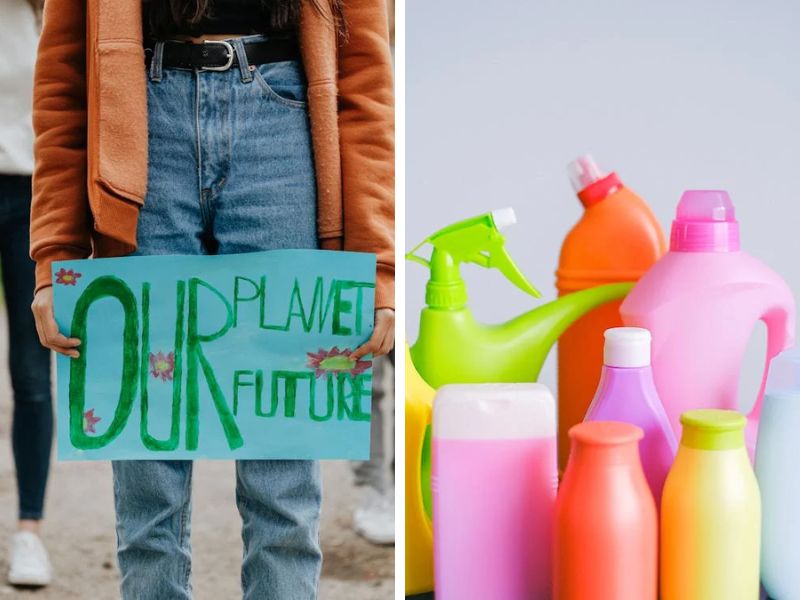Climate activists are well aware of the detrimental impact certain household items have on the environment. It’s easy to spot the apparent culprits like Ziploc bags, plastic plates, paper towels, and gas-guzzling cars. However, according to these activists, numerous other products found in homes contribute to carbon footprints, air pollution, and global warming. Fortunately, they have found alternative solutions. Here, climate activists reveal the planet-harming items they consciously avoid in their homes and the eco-friendly alternatives they prefer.

Image Credit: Pexels/Karolina Grabowska & Pexels/Anna Shvets
Pods And Liquid Detergent For Laundry
Hessann Farooqi, advocacy director at the Boston Climate Action Network, avoids plastic laundry pods and liquid detergent due to recycling challenges and microplastic pollution. He prefers eco-friendly laundry detergent strips that dissolve and effectively clean without plastic.
Access To Television Without Limits
Reinmar Seidler, co-director of the New Hampshire Network for Environment, Energy, and Climate, highlights the influence of television on materialism and its impact on our carbon footprint. Instead of watching TV, Seidler chooses to spend time outdoors, engaging in activities that allow him to slow down and learn about the natural world.
Unused Refrigerators And Air Conditioners
Responsible disposal helps manage climate-harming substances and protects the environment. Unused mini-fridges, refrigerators, and air conditioners can harm the environment due to the refrigerants they contain. It’s important to dispose of them properly. Look for local “bounty programs” or check with your electric utility company or retailers for appliance pick-up or drop-off options.

Image Credit: Pexels/Tim Samuel
Water Bottles Made From Plastic
Farooqi, an environmental advocate, avoids plastic water bottles due to their long decomposition time and harm to wildlife, ecosystems, and human health. Brita filters, refrigerator water dispensers, and carrying a reusable water bottle are choices that reduce carbon footprints.
Climate activists lead the charge in fighting climate change through minimalism and sustainable practices. They prioritize quality, embrace second-hand items, repair and repurpose belongings, and create green home environments. We can learn from their commitment to reduce our environmental impact and make a difference in the world.